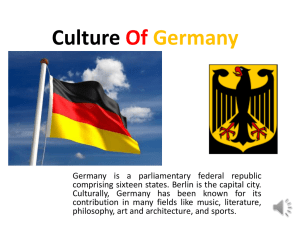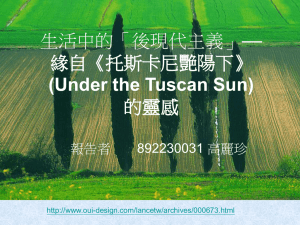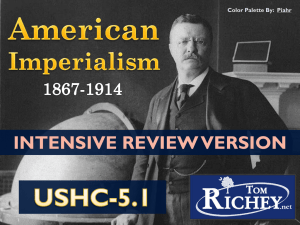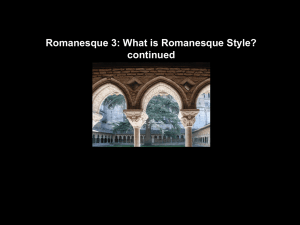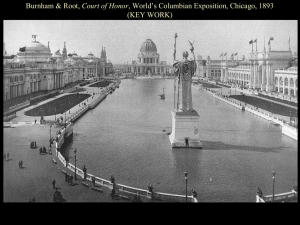Romanesque Architecture: Northern Italy
advertisement
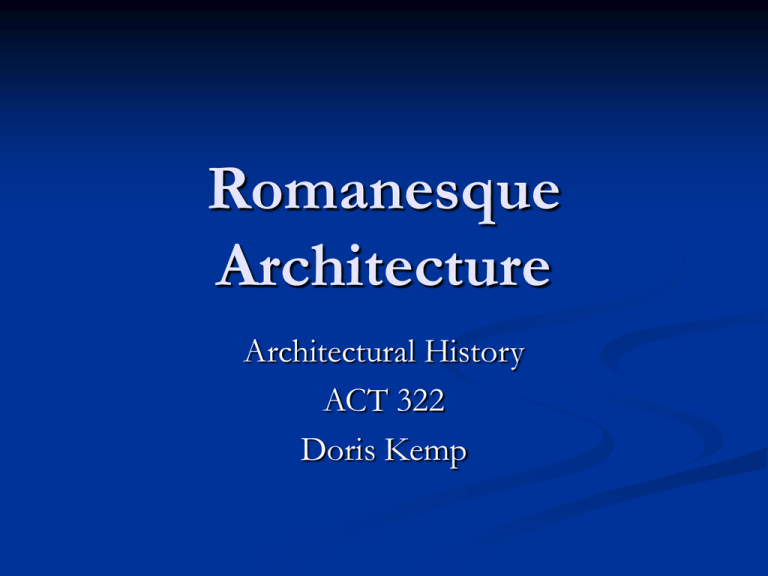
Romanesque Architecture Architectural History ACT 322 Doris Kemp Topics Romanesque Architecture: Sicily and Southern Italy Romanesque Architecture: Northern Italy Romanesque Architecture: Tuscany High Romanesque in Normandy and England Romanesque Architecture: Sicily and Southern Italy Norman rulers arrived south of Rome in the mid 11th century Influences of Byzantium and Saracenic entangled with northern European traditions Important structures: Norman Cathedrals of Cefalu Church of S. Nicola, Bari Romanesque Architecture: Sicily and Southern Italy Norman Cathedral of Cefalu Located in Palermo, Sicily Massive east with choir flanked by lateral chapels Twin-towered façade Fragile basilican nave with columnar supports Interior featured a Byzantine mosaic of Christ Romanesque Architecture: Sicily and Southern Italy Photo: Sullivan Romanesque Architecture: Sicily and Southern Italy Church of S. Nicola Located in Bari, Southern Italy A fusion of early Christian with steep proportions of Norman models Photo: Sullivan Romanesque Architecture: Northern Italy Structures in Northern Italy had a strong classical tradition, but openness to adventurous spirit Less conservative than the south Reflected the political and cultural individualism of the North Romanesque Architecture: Northern Italy Cathedral at Modena c. 1099 15th century rib vaulting Diaphragm arches Open timber roof Double-bay system Triple-gallery arcade Romanesque Architecture: Northern Italy Photo: Sullivan Romanesque Architecture: Northern Italy S. Ambrogio, Milan Triple apses Barrel-vaulted forchoirs Nave of four huge vaulted bays, aisles, and galleries Atrium was almost as large as the church Featured a deep facade structure flanked by towers Rib vaulting Became a major feature of Gothic architecture Romanesque Architecture: Northern Italy Photo: Sullivan Romanesque Architecture: Northern Italy Photo: Sullivan Romanesque Architecture: Northern Italy Photo: Sullivan Romanesque Architecture: Tuscany Tuscany was fortunate to have a wide range of building materials Marble This helped to reinforce the classical tendency of their architecture Romanesque Architecture: Tuscany Pisan (Pisa) Remarkable as a group of structures Cemetery, basilica, tower, and baptistery All featured a standard style Same geometric clarity and sense of volume Same decorative system and scale Same color, texture, and materials Romanesque Architecture: Tuscany Photo: Sullivan Romanesque Architecture: Tuscany Photo: Sullivan Romanesque Architecture: Tuscany Florentine Rational, disciplined articulation Sharp, exquisite Classical detail Two dimensional Key Structures Baptistery of S. Giovanni, Florence Church of S. Miniato al Monte, Florence Romanesque Architecture: Tuscany Baptistery of S. Giovanni, Florence c. 1153 Interior resembles the Pantheon Centralized plan Freestanding Corinthian columns Exterior elevation mirrors the interior Romanesque Architecture: Tuscany Photo: Sullivan Romanesque Architecture: Tuscany Photo: Sullivan Romanesque Architecture: Tuscany Church of S. Miniato al Monte, Florence Medium-sized unvaulted basilica Interior separated by three large bays Rich, paneled arcading Features a half-dome mosaic Romanesque Architecture: Tuscany Photo: Sullivan Romanesque Architecture: Tuscany Photo: Sullivan High Romanesque in England In these locations a new concept of nave wall appeared Major structures Durham Cathedral, England Ely Cathedral, England High Romanesque in England Durham Cathedral c. 1093 -1130 Linear decorative accents Choir-aisle vaults Nave vaults formed a unique double-X pattern of ribs Shows that rib vaulting was a crucial development for the Gothic period of architecture High Romanesque in England Photo: Sullivan High Romanesque in England Photo: Sullivan High Romanesque in England Photo: Sullivan High Romanesque in England Ely Cathedral Photo: Sullivan High Romanesque in England Photo: Sullivan High Romanesque in England Photo: Sullivan High Romanesque in England Winchester Cathedral Photo: Sullivan High Romanesque in England Photo: Sullivan References Sullivan, Mary; http://www.bluffton.edu/~sullivanm/ http://www.brynmawr.edu/Acads/Cities/wld/wdpt1.html Trachtenburg/Hyman; Architecture: From Prehistory to Postmodernity Wodehouse/Moffett; A History of Western Architecture Romanesque Architecture Architectural History ACT 322 Doris Kemp
